Laying out the card on the kitchen table and preparing to make our March for Our Lives banners, I paused. For weeks I had been planning for our family to be part of the movement, and to make a stand against an issue we are deeply passionate about. But for the first time I started to think about the conversations I would need to have with my children – aged six, five, and three – before we took to the streets. Would I tell them about Parkland? That children in schools are targets? What questions would follow, and how would I answer them? How much information should we give?
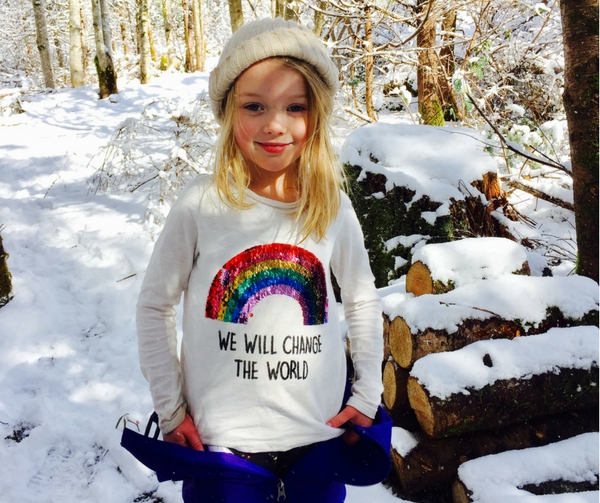
My husband and I discussed it at length and decided that we were not ready to have these conversations with our kids, not ready for their sweet and innocent minds and hearts to be affected by the darkness. Not yet anyway.
Like most parents, I’m sure, I am conflicted every day about how to raise and educate our little people. I go between wanting them to be worldly, giving them the knowledge and perspective they need to have empathy and be change-makers, But at the same time I want to protect them from this harsh world, to preserve their childhood for as long as I can.
We didn’t attend the March for Our lives, though the day did prompt new questions and discussions between my husband and I about how we will manage the next few years, and the possible need for homeschooling in the future. It went beyond safety at school, and became a discussion about if/how/when we would expose them to the realities of the world.
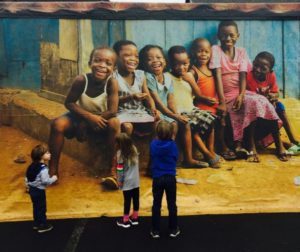
My husband and I have both traveled and worked extensively around the world. We have observed deprivation and conflict on a mass scale from refugee camps to war zones during our years with Doctors without Borders. These experiences and interactions have been life-changing for us and shaped who we are today. Because of our experiences my head tells me it’s important to keep open dialogue and conversations with our kids about what’s going on in the world, but my heart…well, it hurts to think of them worrying or feeling fear that their school is not a safe-haven of learning and play, that the world is to be feared.
As parents we must make our own choices, based on internal beliefs, family values, religion etc. Whether we choose to shelter our kiddies or expose them in a loving way to the world, we will each choose our own path and timeline and words. Personally, my motivation to show them the world comes down to my desire to teach our kids empathy and compassion. But how?
Whenever I have questions relating to parenting I take to the internet looking for answers and advice.
What do the experts suggest about raising worldly kids without fear?
How do we instill empathy in our kids for victims of gun violence without catalyzing unhealthy fear? Homa Sabet Tavangar, author of Growing Up Global: Raising Children to Be at Home in the World, writes:
“You don’t feed a baby a steak. You give them age-appropriate portions and the right consistency, but you do need to feed them. A natural part of growing up is knowing the world has justice and injustice, and there are things we care about and things we can change and things we need to change.”
I think the only right answer is the one you find in your heart as a mother/parent. We will all teach our kids different things, in different ways, and at different times. We must model empathy, we must show strength in the face of adversity, see the light in the darkness, and most of all, choose love. Scarlett Lewis, Founder of the Jesse Lewis Choose Love movement, says:
“Although we can’t always choose what happens to us, we can choose how to respond. Children can learn to choose a loving thought over an angry one. When a child realizes that they have the power to positively impact themselves as well as those around them, it is empowering and perpetuates their positive actions and interactions.”
So, what do you do with your kids to find a balance between worldly and sheltered? I would love to hear your thoughts.


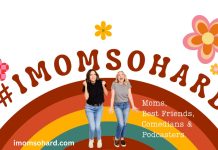



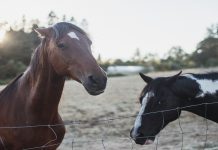
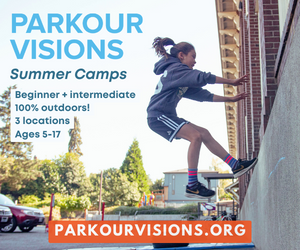



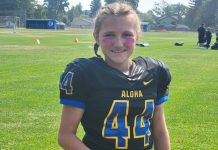
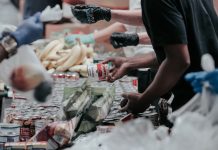

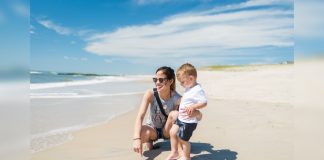




Oh, Sam, this one hit so close to home. I struggle with the same things. We did go to the March for Our Lives as a family, though it didn’t prompt a lot of questions—yet. Even still, my older daughter has had lockdown drills at her school. It is such a fine line between ignorance and innocence, between necessary knowledge and overwhelm. I don’t have answers, but you are not alone in this struggle.
Comments are closed.